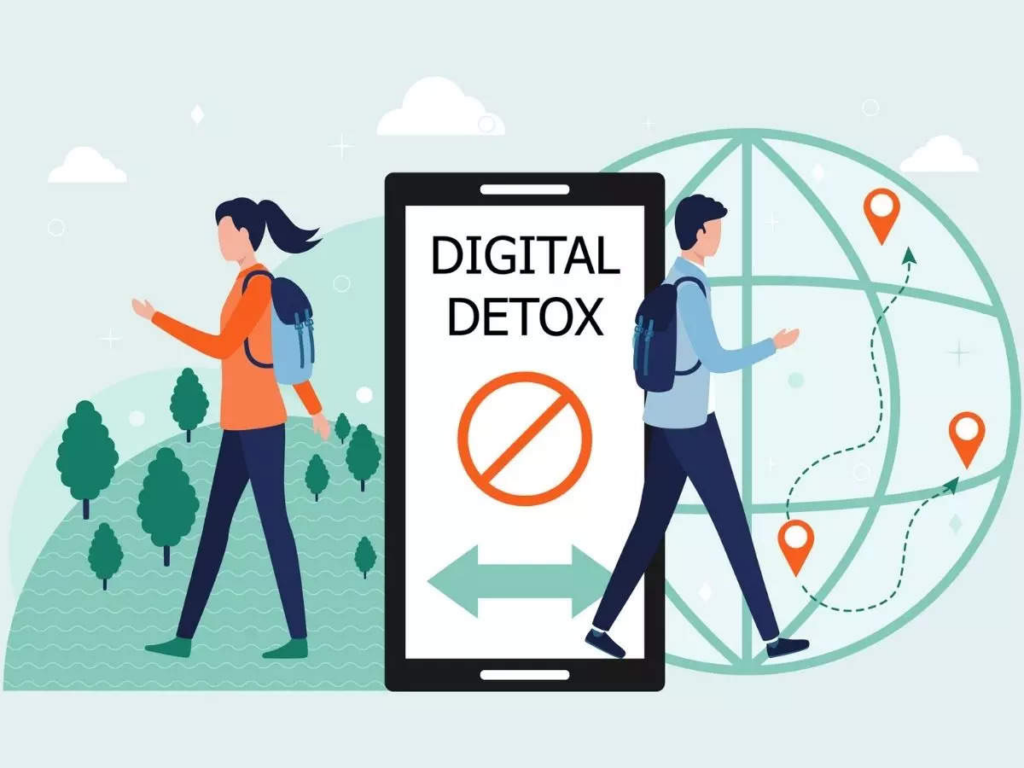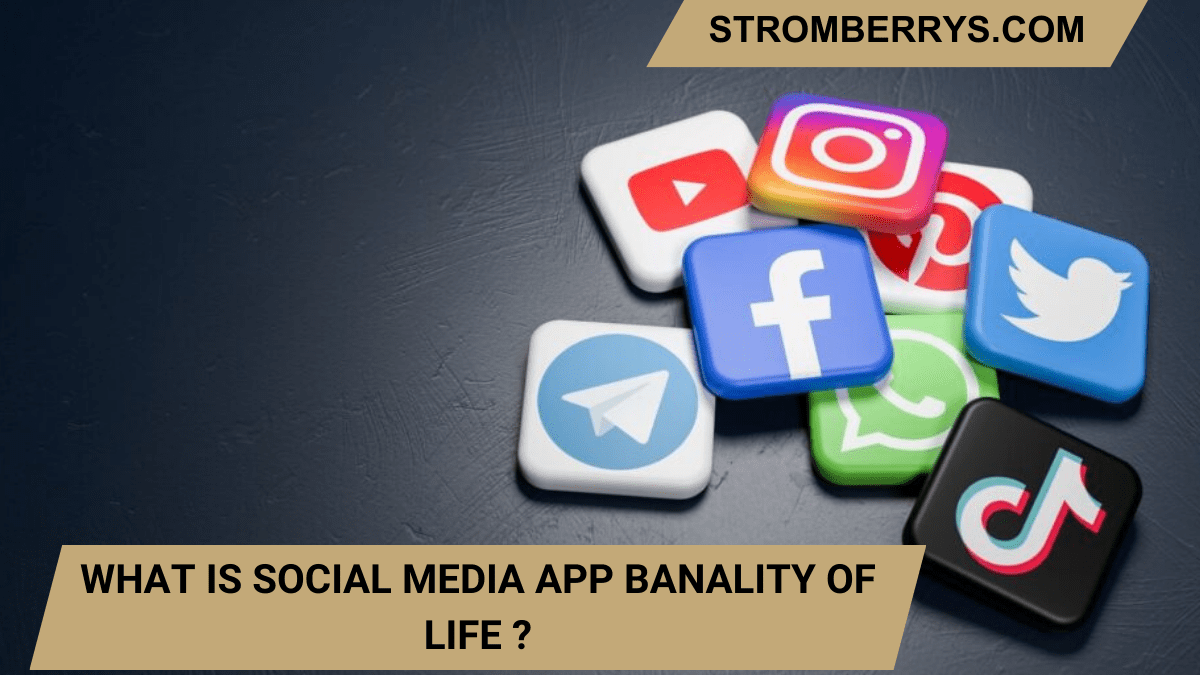In the digital age, social media apps have become an integral part of our daily lives. From scrolling through endless feeds to sharing moments with friends and family, these platforms offer a virtual window into the world. However, amidst the likes, comments, and shares lies a phenomenon that often goes unnoticed—the banality of life on social media.
History:
Social Media App Banality of Life have revolutionized the way we connect, communicate, and consume information. Whether it’s Facebook, Instagram, Twitter, or Snapchat, these platforms have become ingrained in our routines, shaping our perceptions and interactions. Yet, beneath the surface of curated profiles and polished posts lies a sense of monotony—a banality that pervades our digital existence.
The Rise of Social Media Apps:
The proliferation of smartphones and the widespread availability of internet access have fueled the exponential growth of social media apps.

With billions of users worldwide, these platforms have become virtual playgrounds where people share snapshots of their lives, engage in conversations, and seek validation through likes and comments.
Impact on Daily Life:
While Social Media App Banality promise connectivity and community, their impact on daily life is multifaceted. Firstly, they have given rise to a new form of addiction, with users constantly checking their feeds for updates and validation.
This compulsive behavior can lead to decreased productivity, disrupted sleep patterns, and increased anxiety. Moreover, social media apps have altered the way we communicate, favoring brief messages and emojis over face-to-face interactions.
also read: Exploring the Depths of: нфрщщюсщь
This shift has implications for the depth and quality of our relationships, as genuine connection often takes a backseat to likes and follows.
The Banality of Life on Social Media:

Relentless Pursuit of Likes and Followers:
Social media fosters a culture where individuals relentlessly chase after likes and followers, often equating online popularity with personal worth. This pursuit can lead to a superficial focus on accumulating virtual validation rather than genuine connections or self-expression.
Pressure to Present a Curated Version:
There is a pervasive pressure on social media to present a curated version of oneself, showcasing only the highlights and omitting the mundane or challenging aspects of life. This pressure to maintain a flawless online image can contribute to feelings of inadequacy and insecurity.
Illusion of Perfection:
Social media perpetuates an illusion of perfection, where carefully curated feeds create the impression that everyone else’s lives are picture-perfect. From exotic vacations to gourmet meals, these curated realities often mask the everyday struggles and insecurities that individuals experience behind the screen.
Social Media App Banality and Relationships:

- Fostering Shallow Connections: Social media platforms can facilitate superficial interactions, where likes and comments replace genuine conversation. This emphasis on quantity over quality can lead to shallow connections and a lack of intimacy in relationships.
- Disconnection from Reality: Constant engagement with social media can create a sense of disconnection from reality, as individuals prioritize their online personas over authentic experiences. This disconnect can strain relationships, as partners may struggle to connect on a deeper level outside of the digital realm.
- Comparison and Validation-Seeking Behavior: The pervasive culture of comparison and validation on social media can erode intimacy and trust in relationships. Couples may find themselves competing for attention or measuring their worth based on likes and followers, leading to feelings of insecurity and inadequacy. This focus on external validation can detract from the genuine connection and mutual support that are essential for healthy relationships.
Coping Strategies and Solutions:
Digital Detoxes:
Taking breaks from social media to reclaim time and attention. This can involve temporarily deactivating accounts, setting designated “offline” times each day, or participating in digital detox challenges.

By disconnecting from the constant stream of information and validation, individuals can rediscover hobbies, spend quality time with loved ones, and focus on personal growth.
Setting Boundaries:
Establishing limits on social media use to prioritize real-life interactions. This may include setting specific time limits for daily usage, designating certain areas of the home as “device-free zones,” or turning off notifications during work or family time. By creating boundaries, individuals can regain control over their digital habits and ensure that social media does not encroach on other areas of their lives.
Prioritizing Real-Life Interactions:
Focusing on face-to-face connections to cultivate deeper relationships. Instead of relying solely on online interactions, individuals can make an effort to spend quality time with friends, family, and colleagues in person. This can involve scheduling regular meetups, engaging in group activities or hobbies, and actively participating in community events. By prioritizing real-life interactions, individuals can nurture meaningful connections and strengthen their social support networks.
Cultivating Mindfulness:
Developing awareness of motivations and emotions to navigate social media with intention. Mindfulness practices, such as meditation, deep breathing exercises, or journaling, can help individuals become more attuned to their thoughts and feelings while using social media.
also read: Exploring the Creative Depths of r/Grimdank: A Haven for Warhammer 40K Memes
By pausing to reflect on why they are engaging with certain content or seeking validation online, individuals can avoid getting caught up in comparison traps and validation-seeking behaviors. Instead, they can use social media mindfully as a tool for connection, inspiration, and self-expression.
Conclusion:
In conclusion, the Social Media App Banality of Life is a complex and pervasive phenomenon that shapes our perceptions, relationships, and experiences.
While these platforms offer unprecedented opportunities for connection and self-expression, they also perpetuate a culture of sameness and superficiality that can leave us feeling disconnected and unfulfilled.
By being mindful of our social media habits and prioritizing real-life connections, we can reclaim our agency and cultivate a more meaningful and authentic digital experience.
Frequently Asked Questions :
How do social media apps contribute to the banality of life?
Social media encourages presenting a perfect life, fostering sameness and superficiality.
What are some signs of Social Media App Banality of Life addiction?
Constant checking, anxiety when offline, neglecting responsibilities, and withdrawal symptoms.
How can I cope with the banality of life on social media?
Try digital detoxes, set usage boundaries, prioritize real-life interactions, and practice mindfulness.
What role do Social Media App Banality of Life algorithms play in shaping our online experience?
Algorithms tailor feeds to our preferences, but can also create echo chambers.
How can I maintain healthy relationships in the age of social media?
Prioritize quality connections, foster genuine conversations, set boundaries, and communicate openly.





